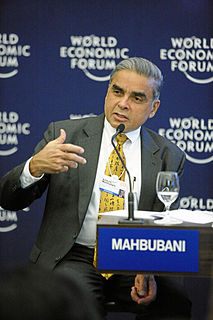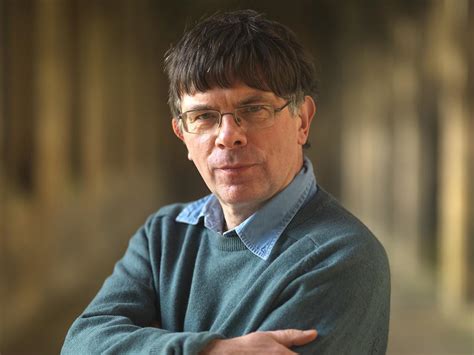A Quote by Kishore Mahbubani
The Great Convergence: Asia, the West and the Logic of One World.
Related Quotes
The medieval Islamic world, from Central Asia to the shores of the Atlantic, was a world where scholars and men of learning flourished. But because we have tended to see Islam as the enemy of the West, as an alien culture, society, and system of belief, we have tended to ignore or erase its great relevance to our own history.
The underlying reason for convergence seems to be that all organisms are under constant scrutiny of natural selection and are also subject to the constraints of the physical and chemical factors that severely limit the action of all inhabitants of the biosphere. Put simply, convergence shows that in a real world not all things are possible.
I'm optimistic about Turkey's prospects for reaching the E.U.'s standards of development, governance, and democracy, whether inside or outside the E.U. Provided you have a prosperous, rational society in Turkey that can interact with Europe and the West, I don't really care what kind of institutional arrangement you have. The point to make about Turkey and Europe is that it's a very long, drawn-out process. What's important is that the process not be stopped, that Turkey and Europe evolve in the right direction, on a path of convergence. Convergence is the name of the game.
The West has never been all of the world that matters. The West has not been the only actor on the stage of modern history even at the peak of the West's power (and this peak has perhaps now already been passed)... It has not been the West that has been hit by the world; it has been the world that has been hit - and hit hard - by the West.




































